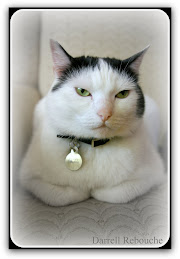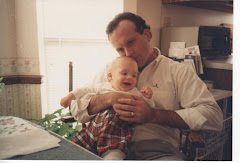The return of the traditional football season seems a lifetime away. We have arena football to get us through if we need a pigskin fix; and college basketball has just recently entered its meaningful phase. The NBA season drags on, collapsing into drudgery as it does due to its protracted mediocrity. So, what is a southern sports fan to do to make it through the dreary days of winter? Well, watch cars zoom around tracks all across the country, that’s what.
NASCAR is changing. Next year, Toyota will run a Camry on two stock car circuits. (This is shocking, shocking some red, white and blue purists. Let’s not get started on the “stars and bars” crowd.) The sport has wisely distanced itself from its long-time tobacco company sponsorship. Now, it has joined America’s major sports by going high-tech with its stats.
Traditionally, the positions of the cars during races were plotted once per lap. Frankly, that’s been part of the sport’s appeal: the simplicity of it. If you can keep up with which cars have been lapped, it’s pretty easy to figure out who’s winning: the car in front. You know how many laps are set aside for a race, and the car that crosses the finish line first wins.
Now, gearheads and nerds unite! Football and baseball fans have long drilled down into stat packages to follow their favorite players more closely. How many people really understand a quarterback rating or a slugging percentage? More than you might think. Now, stock car fans can learn the joy of meditating on the minutiae of their sport. High-tech sensors have been installed at the 36 NASCAR tracks. They can track the positions of every car up to twenty times per lap. The frequency of the findings varies depending upon the size of the track. NASCAR’s like baseball that way. There is a wide variance in the playing field depending on how ballparks are configured, and the racetracks have been constructed at different distances with varying angles on banking, etc.
Thirty or so new racing stats will be generated. This could open a new marketing tool for this ever-growing sport. Don’t be surprised if fantasy racing takes off like rotisserie baseball. The broadcasts should be more interesting, too. Announcers who call football, basketball and baseball are accustomed to having access to an abundance of data, much of it in real time. The availability of this kind of information to the likes of Benny Parsons and Dale Waltrip should help them analyze the intricacies of a race as it unfolds.
This development could broaden the appeal of auto racing. Instead of being perceived as a long series of swift left-hand turns, the underappreciated high-tech aspects of the sport, as well as the oft-disregarded but essential teamwork involved will be illuminated.
The sport’s brain trust has been diligently working on broadening NASCAR’s appeal. Surely, they must cling to their roots. Fast cars, crashes and emotionally-charged confrontations between drivers are part of the package. Subtly, it seems, things are changing. Not to sound condescending, but putting emphasis on things like subject-verb agreement on the part of the announcers is important. You can sound Southern without sounding stupid. A sponsorship based on technology instead of tobacco is a profoundly positive change. Incorporating technology into fan interaction is the next thing in a long list of things being done right at the racetrack.
For those of us who don’t speak the language, (Go ahead, translate this: “If you ain’t rubbin’, you ain’t racin’.)
The opportunity to have things translates for us is welcome as we try to cultivate interest. For the crowd that wants to stick to basics, there are the fundamentals. No matter how many consecutive passes are captured by the sensors, even if “speed in traffic” is charted second-by-second, it still comes down to one thing: the car that crosses the finish line first wins the race.
Wednesday, February 08, 2006
Necks Go High-Tech
Posted by
Darrell
at
2/08/2006
![]()
![]()
Subscribe to:
Post Comments (Atom)














1 comment:
"You can sound Southern without sounding stupid."
Well, I don't know about that. Darrell, you of all people should know that a Southern accent is a significant liability in broadcasting. You didn't last as long as you did by sounding southern, or stupid.
Post a Comment